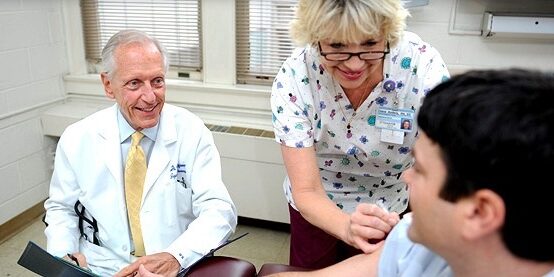
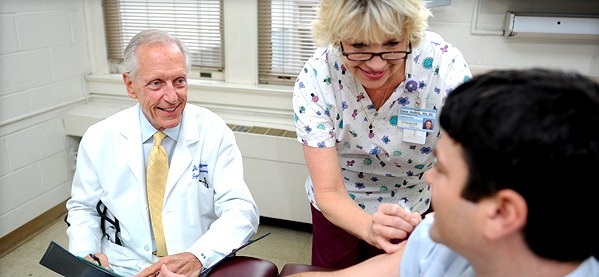 Last week, NFID medical director, William Schaffner, MD, received the inaugural National Vaccine Program Office (NVPO) UpShot Award for Excellence in Vaccine Communication. NVPO recognized Dr. Schaffner for his significant leadership and collaborative approach to improving vaccination across the lifespan, as a prominent communicator on vaccines and immunization.
Last week, NFID medical director, William Schaffner, MD, received the inaugural National Vaccine Program Office (NVPO) UpShot Award for Excellence in Vaccine Communication. NVPO recognized Dr. Schaffner for his significant leadership and collaborative approach to improving vaccination across the lifespan, as a prominent communicator on vaccines and immunization.
“Vaccines cannot speak for themselves; they need vocal advocates in every community in order to preserve their great contributions to healthier lives and healthier communities.”
Thoughtful, evidence-based communication is important when talking to the public, the media, and other healthcare professionals, as there is an abundance of misinformation and myths about vaccines. Here are 5 tips for effectively communicating the benefits of timely vaccination:
- Listen to Concerns
Share reasons why the recommended vaccine is appropriate, based on patient age, chronic health conditions, lifestyle, job, or other factors. This may be sufficient for some patients to accept the vaccine but other individuals may want to learn more about the risk and benefits of the vaccine. When communicating with patients, listen to their concerns, including side effects, safety, and vaccine effectiveness, as the better you understand their concerns, the more you will be able to tailor your message. Read 5 types of vaccine-hesitant parents for tips on how to tailor messaging for different individuals, - Provide Information on the Benefits of Vaccination
Stay up-to-date on the latest updates on recommended vaccines so you can accurately share the benefit of vaccinations and the risk of remaining unvaccinated. Patients are often unaware of the true risk of contracting (or spreading) a vaccine-preventable disease. Share Centers for Disease Control and Prevention (CDC) reports and alerts on outbreaks of vaccine-preventable diseases with patients to illustrate that they may be at risk…even in the US. - Communicate through Stories
Highlight positive experiences with vaccines (your own, your children, or of other patients) to reinforce the benefits of vaccination and “lead by example.” The NFID “Real Stories, Real People” library provides real-life stories of the dangers of not being fully vaccinated. 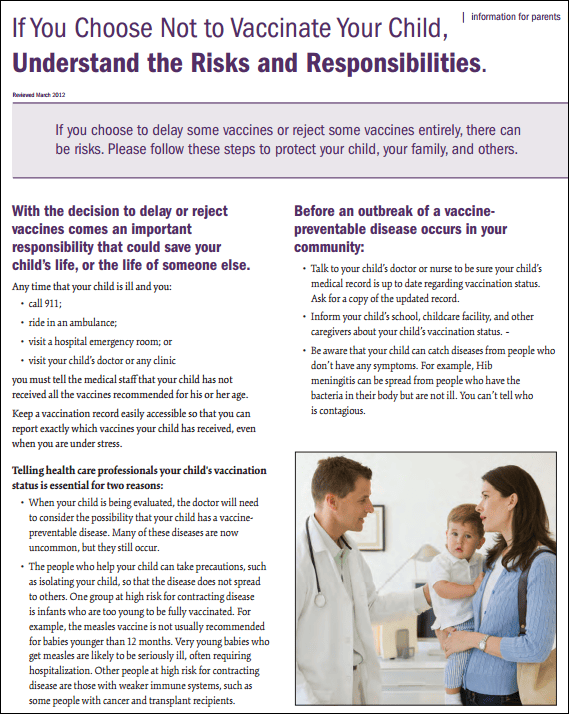 Just the Facts
Just the Facts
Present facts and data to patients and parents in plain, easy-to-understand language. For example, comparing statistics of everyday activities to risks from infectious diseases helps patients to conceptualize risks. Share materials such as CDC fact sheets that outline potential risks for children whose parents choose to delay or decline a vaccine.- Keep Lines of Communication Open
Some patients may need additional time to consider information about vaccines or want more details than can be provided during a single office visit. To help these patients make informed decisions on vaccinations, provide educational materials and trusted websites for them to review, share email or mail reminders about recommended vaccines between visits, and document the conversation to facilitate continued discussions at their next visit.
Congratulations again to Dr. Schaffner on a well-deserved award and for consistently remaining the voice of reason in ongoing public debates regarding vaccine skepticism and promoting sound science on the importance and safety of vaccines!
To join the conversation, follow us on Twitter (@nfidvaccines), like us on Facebook, join the NFID Linkedin Group, and subscribe to NFID Updates.
Related Posts

Protecting Children as They Head Back to School
As school gets underway, experts from the National Foundation for Infectious Diseases (NFID) offer insights on childhood immunization
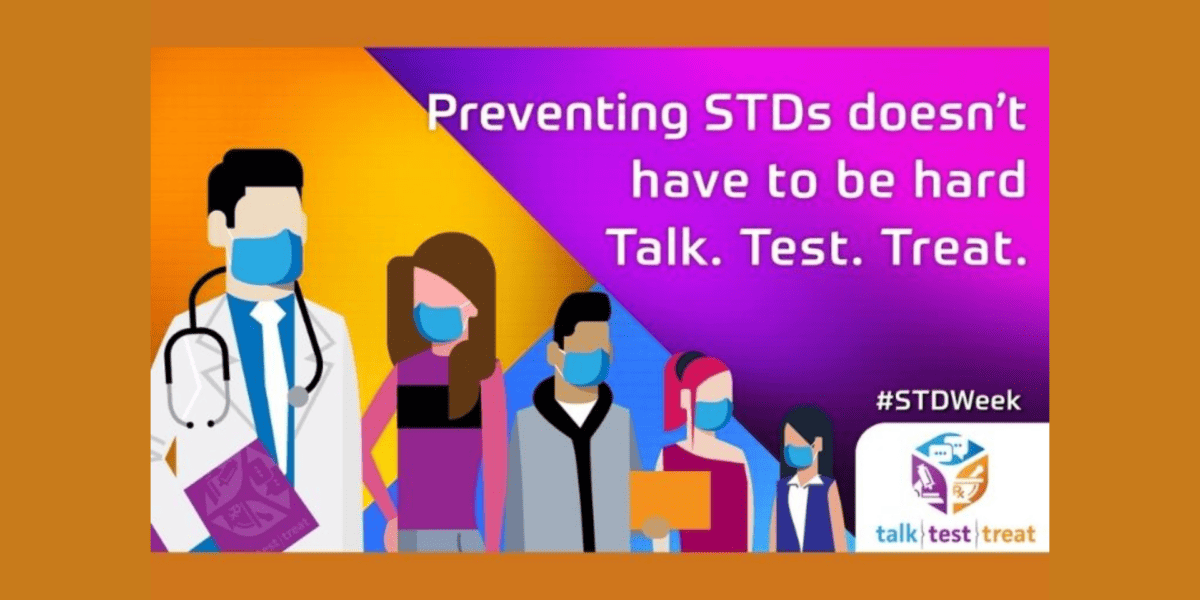
Lifelong Conversations about Sexual Health
Teen Health Week is April 4-10, 2022, and STD Awareness Week is April 10-16, 2022, both of which provide an opportunity for healthcare professionals to begin lifelong conversations with patients about sexual health and the importance of staying up to date on all recommended vaccines …
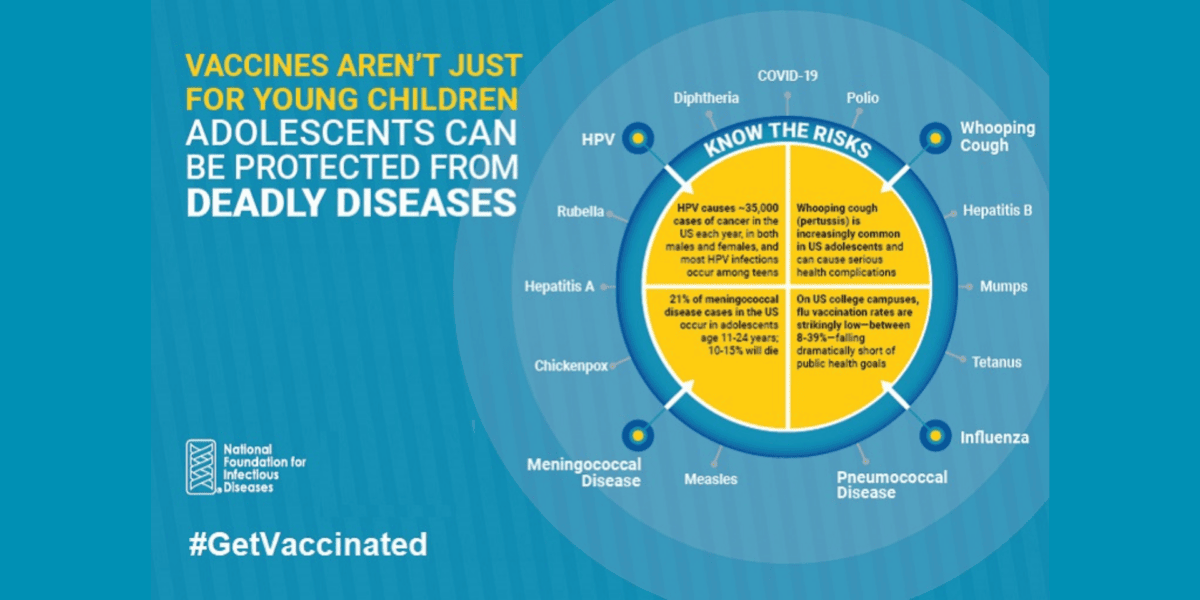
Vaccines Are Not Just for Young Children
CDC recommends vaccinations from birth to adulthood to provide a lifetime of protection. Yet many adolescents are not vaccinated as recommended, leaving them unnecessarily vulnerable. International Adolescent Health Week (March 20-26, 2022) is a perfect time to make sure that pre-teens and teens are up to date on all recommended vaccines …
